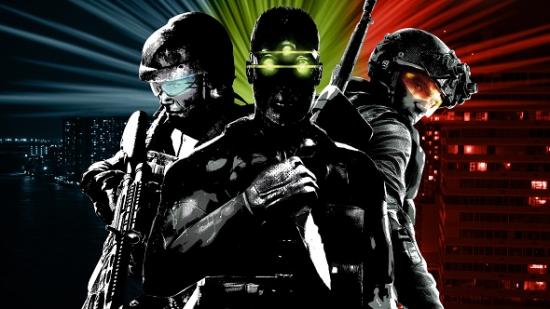Tom Clancy died in 2013. This may come as a surprise to many players of Tom Clancy’s Rainbow Six Siege, which was released two years after his death in 2015. Clearly, Clancy had very little to do with making the game – so why is his name emblazoned across the packaging?
It’s a strange tale of how one person’s name became a brand – and how that brand subsequently went on to have a life of its own, completely divorced from the person it used to belong to.
Did you know: Far Cry 5 isn’t about Trump, it’s about US separatism.
Who is Tom Clancy?
For a generation of gamers, Tom Clancy’s name is synonymous with Ubisoft and a certain brand of military shooter. Many younger players may not even know that he was also a phenomenally successful author, selling around 100 million books in his lifetime. Indeed, there’s no shortage of people asking “Who is Tom Clancy?” on the internet, like this Quora user asking “Who is Tom Clancy? I know him from video games, but did he do something else?” In fact, “Who is Tom Clancy?” is in the top 600 “who” questions asked on Google.
Tom Clancy released his debut novel, The Hunt for Red October, in 1984. He wrote it in his spare time while working for an insurance agency, and was 37 when it was released to great acclaim and phenomenal success – it ended up selling well over two million copies. So started Clancy’s career of penning best-selling military thrillers, lauded for their technical detail and taut plotlines.
How did Tom Clancy get into games?
The first videogame based on one of Tom Clancy’s works was released in 1987 – a submarine simulator for PC that was adapted from The Hunt for Red October. It heralded the start of an extremely long lineage of Tom Clancy games that would extend far beyond the author’s untimely death from suspected heart failure at the age of 66.
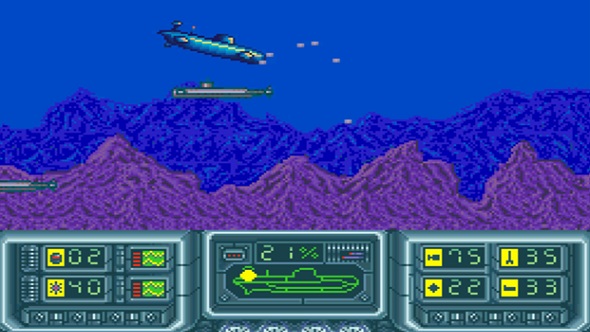
Following further ports of The Hunt for Red October, and the release of another submarine sim – Red Storm Rising, based on the novel of the same name – Tom Clancy co-founded the game developers Red Storm Entertainment along with Royal Navy captain Doug Littlejohns and game producer Steve Reid. The company released Tom Clancy’s Rainbow Six in 1998, a tactical shooter based on the Rainbow Six novel, in which a multinational counter-terrorism team is deployed around the world. It received a rapturous reception from the press, and although not technically the first tactical shooter, it revolutionised the genre and spawned many imitators.
So far, so good. But then Ubisoft stepped in, bringing us one step closer to the phantom influence of Tom Clancy. The French company bought Red Storm Entertainment in 2000, and oversaw the release of around half-a-dozen Rainbow Six games over the next eight years, with the later titles being developed by other Ubisoft studios, such as Ubisoft Montreal.
Red Storm Entertainment, meanwhile, created several tactical shooters under the title Tom Clancy’s Ghost Recon. What’s odd about these titles is that, unlike Rainbow Six, the Ghost Recon games weren’t based on any of Tom Clancy’s books, yet still bore his name. Since Tom Clancy co-founded the studio, it presumably made sense that the Ghost Recon games carry his name – whether the author had any input in their creation is unknown.
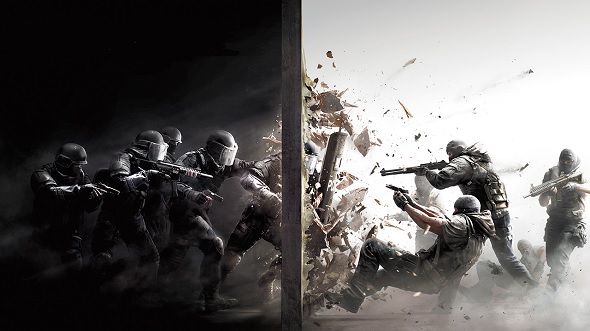
It was after this that something extraordinary happened. In 2008, in an unexpected move, Ubisoft bought Tom Clancy’s name. To clarify, they didn’t agree a licence to use his name, they simply bought it.
The deal gave Ubisoft all “intellectual property rights to the Tom Clancy name, on a perpetual basis and free of all related future royalty payments, for use in video games and ancillary products including related books, movies and merchandising products.” The precise terms of the deal have never been publicly disclosed, but it appears that Clancy essentially gave up having any say about how his name would be used, and forfeited any future royalty payments he might have gained from it, all for a sum that is likely to have totalled multiple millions.
Ubisoft said in a 2008 press statement that “the royalty savings generated by this acquisition are estimated to have an average positive impact on Ubisoft’s operating income of a minimum of five million euros per year” – so it’s clear that the company was already paying a lot to use Tom Clancy’s name.
Clancy was free to use his own name in his personal life and, most importantly, on his books – but when it came to videogames and “ancillary products,” his name was no longer his own. Which begs the question: what does the name Tom Clancy actually signify?
What does Tom Clancy mean now?
A staunch conservative, Tom Clancy led an extraordinary life, and he continues to cause controversy long after his death. He owned a working World War II tank, which was apparently a Christmas gift from his wife. Sales of his first book were helped by US president Ronald Reagan praising it as the “perfect yarn,” and his 1994 novel Debt of Honor features an airline pilot committing a suicide attack against the US Capitol building, an eerie precedent of the terror attacks of September 2001. Indeed, Clancy appeared on CNN shortly after the attacks, criticising the lack of investment in the US intelligence services.
Legal battles over his approximately $83-million estate dragged on for years after his death as a result of an ambiguously worded will, leaving it unclear whether the taxes due should be paid by his second wife or his four children from a previous marriage. More recently, the rights to the Jack Ryan character have come under dispute, with Clancy’s widow seeking full ownership of the character.
Tom Clancy is no longer the name of a man, it’s a brand. A brand that signals the undercover world of spies and counter-terrorism, and a certain kind of taut military thriller. Several authors have continued to write stories based on Clancy’s characters, like Jack Ryan. It’s notable that the writers’ own names appear in small type on the covers, while the brand name “Tom Clancy” fills nearly half of the page.

When it comes to videogames, the Tom Clancy brand is effectively used as shorthand to indicate an experience that hews to right-wing politics and ideologies, a game in which the superheroes of the American military are parachuted in to restore order and mete out justice. Released long after Clancy’s death, Tom Clancy’s The Division is a good example of this. As Newsweek noted, the Tom Clancy brand indicates that “a political imagination of a certain conservative mindset is in [the game’s] DNA.”
As in right-wing politics, there are heroes and villains, the good guys and the bad guys, with the subtle shades between the two neatly erased for the sake of telling a ripping yarn. As George W. Bush famously said, “Either you are with us, or you are with the terrorists” – an epithet that seems to be reflected in the empty streets of The Division’s New York, as Newsweek notes, when you meet “ragtag groups of criminals who steal to survive” and then gun them down with impunity. Forbes went even further, describing The Division as “a dystopian nightmare about the virtues of big government” in which the government’s response to “American citizens trying to make it, trying to survive, in a post-apocalyptic world” is to “go kill everything that moves and carrying a gun.” You’re either with us or against us.
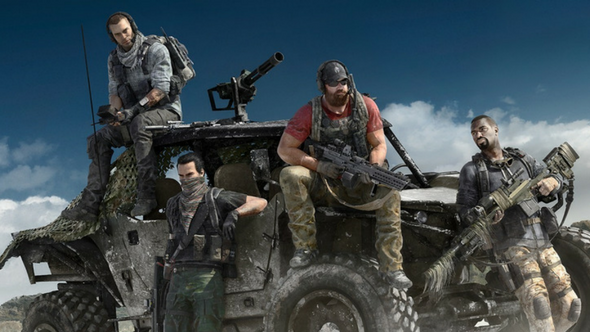
Tom Clancy’s Ghost Recon Wildlands is similar, portraying what Paste calls a “gung-ho Tom Clancy presentation of the world”. That game features a drug cartel which takes over Bolivia, and encapsulates the long-fought War on Drugs, initiated by Richard Nixon in the 1970s. But there’s no subtlety here. There’s no acknowledgement that, as the Global Commission on Drugs reported in 2011, “The global war on drugs has failed, with devastating consequences for individuals and societies around the world.” There’s no acknowledgement that the War on Drugs might have created the drug cartels in the first place, by stimulating “the growth of a huge criminal black market.” Instead we are presented with drugs = bad, US military = good.
Ultimately, the Tom Clancy moniker, like right-wing politics, suggests a fear of ‘the other’. As Paste notes: “The Clancyverse is made up of threats to American domestic security and foreign power projection. There is no way of conceiving of a story set within this political framework that isn’t based on fears about the security of some kind of American institution or ideal.” At its most basic, as in Rainbow Six Siege, where the story has been stripped back to virtually nothing, the Clancyverse can be boiled down to a game of cops and robbers, the good guys versus the bad guys, us versus them.
The dreaded “P” word
The Tom Clancy brand is essentially a way for Ubisoft to signal that a game encapsulates right-wing ideals, but without having to get into the politics of it – or even acknowledge politics at all. Ubisoft seems to want to use names and themes that are tied to politics to sell their games, but without engaging with these themes and their implications themselves.
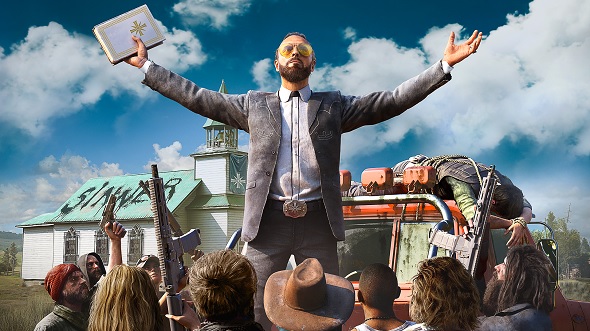
Take Far Cry 5. The whole setup of the game, with its gun-happy cults holed up in rural America, seems utterly mired in the ongoing debate about gun control, a topic that has only become more relevant with the recent mass shootings and gun-control rallies. But even though Far Cry 5 was based around these themes, it seems the game ended up becoming much more political than Ubisoft intended – to the point where Far Cry boss Dan Hay went to great lengths to avoid discussing any relevance of the game to contemporary America. But even if Ubisoft don’t wish to engage with political arguments, they are still pushing certain politics through their games – and the Tom Clancy name is the most obvious case of that.
It’s not unheard of for a creator’s name to be attributed to works made long after they have passed away – Jim Henson’s Pajanimals from 2008 is an example, a show created long after the puppeteer’s death in 1990. But it isunusual. Tom Clancy may have slipped loose from these mortal coils a long time ago, but his brand still haunts the Earth – and that brand is now shorthand for a gung-ho, right-wing military-‘em-up with no room for shades of grey, and most certainly no mention of the ‘p’ word.
